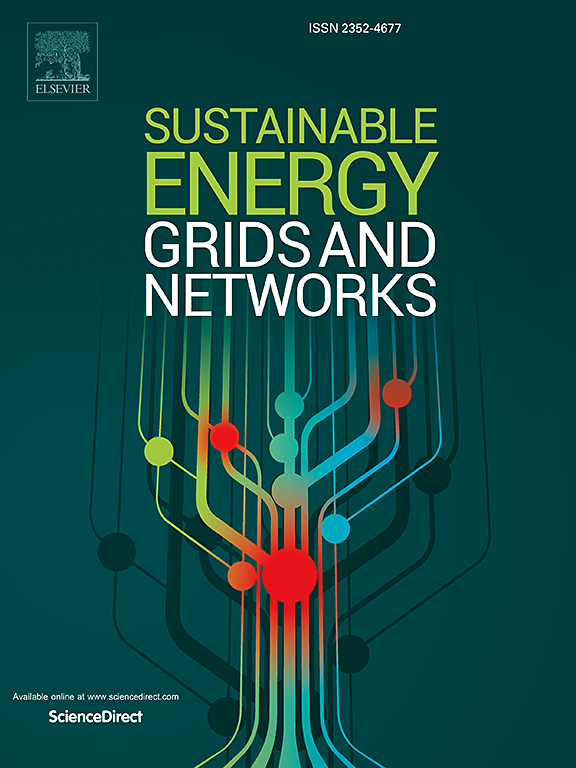An efficient coordinated energy trading mechanism for economic sustainability of EVCSs and EVs in competitive electricity market
IF 4.8
2区 工程技术
Q2 ENERGY & FUELS
引用次数: 0
Abstract
The integration of electric vehicle charging stations (EVCS) into the power grid significantly impacts the electricity market due to the uncoordinated charging behavior of electric vehicles (EVs). This causes changes in load demand, which is responsible for grid imbalances, price changes, higher grid maintenance costs, and a higher chance of power outages, especially in low-voltage grids. This work focuses on enhancing the profit for EVCS while concurrently minimizing the charging cost for EVs owners by using coordinated charging of EVs at EVCS. The better coordinated charging of EVs increases the profit of each EVCS and lowers the cost of charging for EVs owners. This paper proposes a Monte Carlo simulation-based bi-level coordinated transactive energy trading mechanism. In the first part, the Monte Carlo simulation coordinates the EVs charging process based on their respective arrival time at the EVCS, where as in the second part, a cooperative game theory-based energy trading mechanism has been modeled to trade energy in the transactive energy market through the Distribution System Operators(DSO) with different EVCSs. The proposed coordinated charging approach enhances the profitability of all EVCSs as compared to the other existing method. The proposed technique has been implemented and validated on a modified IEEE-33 bus system.
竞争性电力市场中促进电动汽车和低碳能源系统经济可持续性的高效协调能源交易机制
由于电动汽车的充电行为不协调,电动汽车充电站接入电网对电力市场产生了重大影响。这会导致负载需求的变化,从而导致电网不平衡、价格变化、更高的电网维护成本和更高的停电机会,特别是在低压电网中。本文的研究重点是通过电动汽车在电动汽车服务站的协调充电,在提高电动汽车服务站利润的同时,使电动汽车车主的充电成本最小化。电动汽车更好的协同充电可以提高每个电动汽车制造商的利润,降低电动汽车车主的充电成本。提出了一种基于蒙特卡罗仿真的双层协调能源交易机制。在第一部分中,蒙特卡罗仿真根据电动汽车各自到达EVCS的时间来协调充电过程,在第二部分中,基于合作博弈论的能源交易机制建模,通过不同EVCS的分配系统运营商(DSO)在交易能源市场中进行能源交易。与其他现有方法相比,所提出的协调充电方法提高了所有电动汽车的盈利能力。该技术已在改进的IEEE-33总线系统上实现并验证。
本文章由计算机程序翻译,如有差异,请以英文原文为准。
求助全文
约1分钟内获得全文
求助全文
来源期刊

Sustainable Energy Grids & Networks
Energy-Energy Engineering and Power Technology
CiteScore
7.90
自引率
13.00%
发文量
206
审稿时长
49 days
期刊介绍:
Sustainable Energy, Grids and Networks (SEGAN)is an international peer-reviewed publication for theoretical and applied research dealing with energy, information grids and power networks, including smart grids from super to micro grid scales. SEGAN welcomes papers describing fundamental advances in mathematical, statistical or computational methods with application to power and energy systems, as well as papers on applications, computation and modeling in the areas of electrical and energy systems with coupled information and communication technologies.
 求助内容:
求助内容: 应助结果提醒方式:
应助结果提醒方式:


